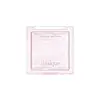What's inside
What's inside
 Key Ingredients
Key Ingredients

 Benefits
Benefits

 Concerns
Concerns

 Ingredients Side-by-side
Ingredients Side-by-side

Nylon-12
Magnesium/Potassium/Silicon/Fluoride/Hydroxide/Oxide
Polymethyl Methacrylate
Hdi/Trimethylol Hexyllactone Crosspolymer
Caprylyl Glycol
EmollientEthylhexylglycerin
Skin ConditioningSilica
AbrasiveIsopropyl Titanium Triisostearate
EmollientMyristic Acid
CleansingLauroyl Lysine
Skin ConditioningTocopherol
AntioxidantWater
Skin ConditioningButylene Glycol
Humectant1,2-Hexanediol
Skin ConditioningLimonia Acidissima Extract
Skin ConditioningGossypium Herbaceum Seed Extract
Skin ConditioningNylon-12, Magnesium/Potassium/Silicon/Fluoride/Hydroxide/Oxide, Polymethyl Methacrylate, Hdi/Trimethylol Hexyllactone Crosspolymer, Caprylyl Glycol, Ethylhexylglycerin, Silica, Isopropyl Titanium Triisostearate, Myristic Acid, Lauroyl Lysine, Tocopherol, Water, Butylene Glycol, 1,2-Hexanediol, Limonia Acidissima Extract, Gossypium Herbaceum Seed Extract
Magnesium/Potassium/Silicon/Fluoride/Hydroxide/Oxide
Hydrogen Dimethicone
Mica
Cosmetic ColorantTriethoxycaprylylsilane
Hdi/Trimethylol Hexyllactone Crosspolymer
Silica
AbrasiveTalc
AbrasiveDimethicone
EmollientCetearyl Alcohol
EmollientIsopropyl Titanium Triisostearate
EmollientSynthetic Fluorphlogopite
CI 77891
Cosmetic ColorantAluminum Hydroxide
EmollientMethicone
EmollientGlycerin
HumectantPentylene Glycol
Skin ConditioningMagnesium Myristate
Sodium Acrylate/Sodium Acryloyldimethyl Taurate Copolymer
Emulsion StabilisingWater
Skin ConditioningIsohexadecane
EmollientPolysorbate 80
EmulsifyingSorbitan Oleate
EmulsifyingPolysorbate 20
EmulsifyingSodium Dehydroacetate
PreservativeCI 77007
Cosmetic ColorantMagnesium Aluminum Silicate
AbsorbentSorbitan Stearate
EmulsifyingSorbitan Olivate
EmulsifyingEthylhexylglycerin
Skin ConditioningTocopherol
AntioxidantKaolin
AbrasiveCI 73360
Cosmetic ColorantButylene Glycol
HumectantAgave Tequilana Leaf Extract
AstringentCentella Asiatica Leaf Extract
Skin ConditioningSpiraea Ulmaria Extract
AstringentCamellia Sinensis Leaf Extract
AntimicrobialMagnesium/Potassium/Silicon/Fluoride/Hydroxide/Oxide, Hydrogen Dimethicone, Mica, Triethoxycaprylylsilane, Hdi/Trimethylol Hexyllactone Crosspolymer, Silica, Talc, Dimethicone, Cetearyl Alcohol, Isopropyl Titanium Triisostearate, Synthetic Fluorphlogopite, CI 77891, Aluminum Hydroxide, Methicone, Glycerin, Pentylene Glycol, Magnesium Myristate, Sodium Acrylate/Sodium Acryloyldimethyl Taurate Copolymer, Water, Isohexadecane, Polysorbate 80, Sorbitan Oleate, Polysorbate 20, Sodium Dehydroacetate, CI 77007, Magnesium Aluminum Silicate, Sorbitan Stearate, Sorbitan Olivate, Ethylhexylglycerin, Tocopherol, Kaolin, CI 73360, Butylene Glycol, Agave Tequilana Leaf Extract, Centella Asiatica Leaf Extract, Spiraea Ulmaria Extract, Camellia Sinensis Leaf Extract
 Reviews
Reviews

Ingredients Explained
These ingredients are found in both products.
Ingredients higher up in an ingredient list are typically present in a larger amount.
Butylene Glycol (or BG) is used within cosmetic products for a few different reasons:
Overall, Butylene Glycol is a safe and well-rounded ingredient that works well with other ingredients.
Though this ingredient works well with most skin types, some people with sensitive skin may experience a reaction such as allergic rashes, closed comedones, or itchiness.
Learn more about Butylene GlycolEthylhexylglycerin (we can't pronounce this either) is commonly used as a preservative and skin softener. It is derived from glyceryl.
You might see Ethylhexylglycerin often paired with other preservatives such as phenoxyethanol. Ethylhexylglycerin has been found to increase the effectiveness of these other preservatives.
This ingredient is a powder used to improve texture, slip, and give products a silky texture.
Isopropyl Titanium Triisostearate isn't fungal acne safe.
We don't have a description for Magnesium/Potassium/Silicon/Fluoride/Hydroxide/Oxide yet.
Silica, also known as silicon dioxide, is a naturally occurring mineral. It is used as a fine, spherical, and porous powder in cosmetics.
Though it has exfoliant properties, the function of silica varies depending on the product.
The unique structure of silica enhances the spreadability and adds smoothness, making it a great texture enhancer.
It is also used as an active carrier, emulsifier, and mattifier due to its ability to absorb excess oil.
In some products, tiny microneedles called spicules are made from silica or hydrolyzed sponge. When you rub them in, they lightly polish away dead skin layers and enhance the penetration of active ingredients.
Learn more about SilicaTocopherol (also known as Vitamin E) is a common antioxidant used to help protect the skin from free-radicals and strengthen the skin barrier. It's also fat soluble - this means our skin is great at absorbing it.
Vitamin E also helps keep your natural skin lipids healthy. Your lipid skin barrier naturally consists of lipids, ceramides, and fatty acids. Vitamin E offers extra protection for your skin’s lipid barrier, keeping your skin healthy and nourished.
Another benefit is a bit of UV protection. Vitamin E helps reduce the damage caused by UVB rays. (It should not replace your sunscreen). Combining it with Vitamin C can decrease sunburned cells and hyperpigmentation after UV exposure.
You might have noticed Vitamin E + C often paired together. This is because it is great at stabilizing Vitamin C. Using the two together helps increase the effectiveness of both ingredients.
There are often claims that Vitamin E can reduce/prevent scarring, but these claims haven't been confirmed by scientific research.
Learn more about TocopherolWater. It's the most common cosmetic ingredient of all. You'll usually see it at the top of ingredient lists, meaning that it makes up the largest part of the product.
So why is it so popular? Water most often acts as a solvent - this means that it helps dissolve other ingredients into the formulation.
You'll also recognize water as that liquid we all need to stay alive. If you see this, drink a glass of water. Stay hydrated!
Learn more about Water